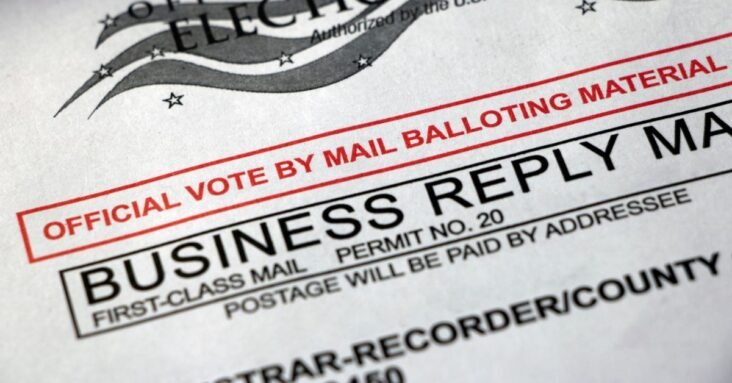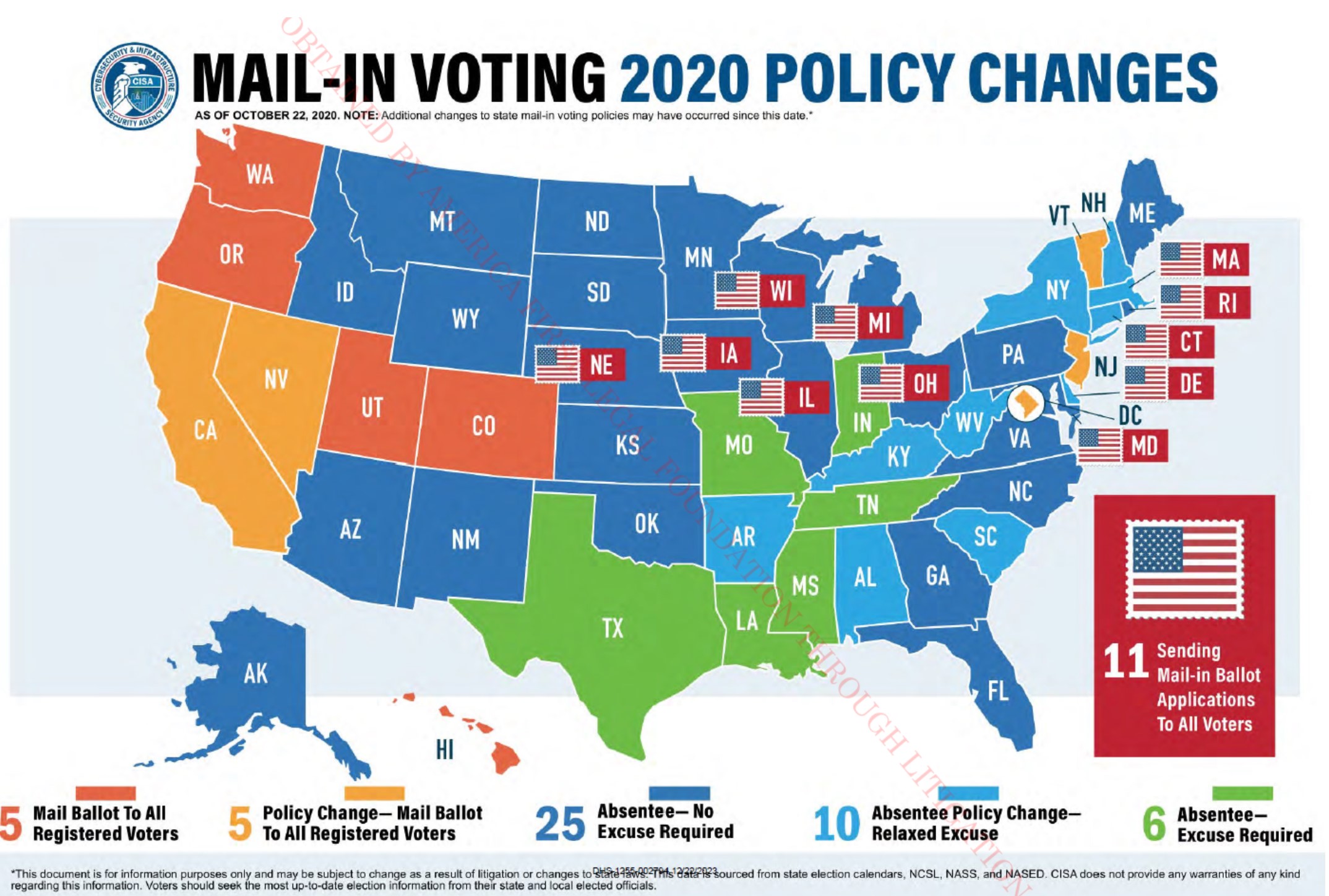
The Cybersecurity and Infrastructure Security Agency (CISA) censored Americans critical of mail-in ballots prior to the 2020 election despite knowing that they were at-risk of fraud.
CISA documents obtained by America First Legal show that the Department of Homeland Security agency knew full well there were legitimate criticisms of mail-in ballots but it unconstitutionally advocated for the censorship of Americans questioning them anyway.
The legal watchdog points out that CISA’s acknowledged mail-in ballot issues are as follows:
-
- CISA knew mail-in and absentee voting are less secure than in-person (i.e., verified voting) voting, confirming warnings by former President Trump and others of increased fraud, and shared these concerns with mainstream media outlets during an unclassified “media tour” the Friday before the 2020 election. However, the mainstream media, having derided the notion that “vote by mail” was less secure than in-person voting, covered up the truth.
- CISA knew that there was no credible evidence to support the claim that in-person voting would spread COVID-19. Yet, it covered up the truth and supported mass vote-by-mail schemes.
- CISA relied upon Deloitte, an accounting and consulting firm, to gather disinformation “narratives” regarding vote-by-mail across social media for the purpose of monitoring and censorship.
CISA knew of mail-in ballot risks, as shown by its own documents.
In a “test run” in September 2020, CISA sought to draw inferences from evidence that in-person voting did not increase the spread of COVID-19.
“Links to a newer study that could not conclude that voting in April primary increased the spread of Covid, refuting an earlier study,” the document said.
CISA was also aware that mass “vote-by-mail” operations posed “major challenges,” including “the process of mailing and returning ballots,” which led to “high numbers of improperly completed ballots (figures not yet released),” and “the shortage of personnel to process ballots in a prompt manner.”
Strikingly, CISA created a chart specifying six examples of “mail-in voting risk”:
This is summarized by the AFL below (emphasis added):
-
- “Implementation of mail-in voting infrastructure and processes within a compressed timeline may also introduce new risk.”
-
- “For mail-in voting, some of the risk under the control of election officials during in-person voting shifts to outside entities, such as ballot printers, mail processing facilities, and the United States Postal Service.”
- “Integrity attacks on voter registration data and systems represent a comparatively higher risk in a mail-in voting environment when compared to an in-person voting environment.”
- “The outbound and inbound processing of mail-in ballots introduces additional infrastructure and technology, increasing potential scalability of cyber attacks.”
- “Inbound mail-in ballot processes and tabulation take longer than in-person processing, causing tabulation of results to occur more slowly and resulting in more ballots to tabulate following election night.”
- “Disinformation risk to mail-in voting infrastructure and processes is similar to that of in-person voting while utilizing different content. Threat actors may leverage limited understanding regarding mail-in voting processes to mislead and confuse the public.”
CISA also noted that “Mail-in Voting 2020 Policy Changes” were being implemented across the United States. Several of these election rule changes were unconstitutional, because they were not implemented through the state legislatures.
Critically, CISA shared these findings in an “unclassified media tour” on the Friday before Election Tuesday.
Nonetheless, the Washington Post and other such left-leaning outlets ignored the mail-in ballot risks detailed by CISA, and claimed without evidence that CISA Director Chris Kreb was making apolitical “statements about the security of mail-in ballots” that “directly contradict” those asserted by Donald Trump.







 WASHINGTON, D.C. – Today, America First Legal (AFL) released new
WASHINGTON, D.C. – Today, America First Legal (AFL) released new 
